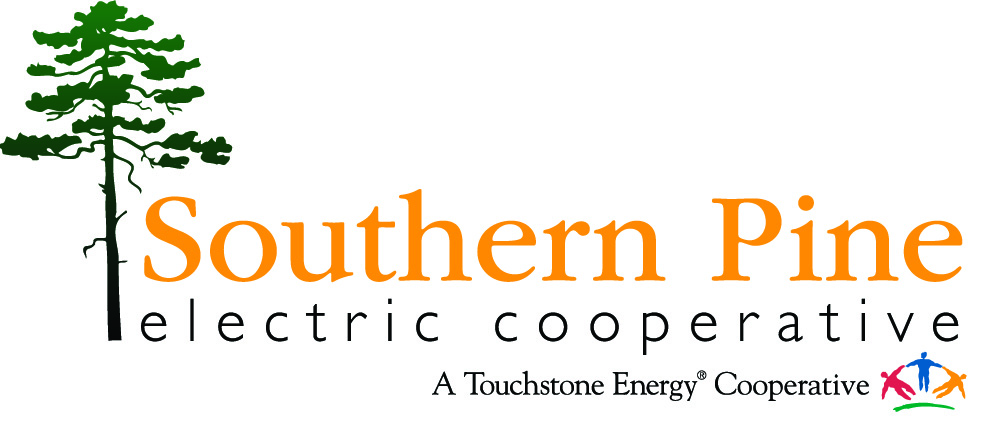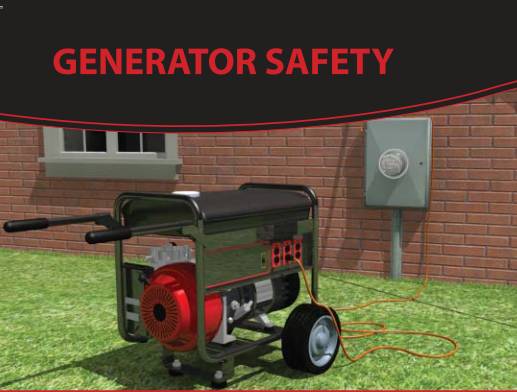When storms hit our area, we rush to your aid as soon as weather conditions permit linemen to travel and safely make repairs.
Southern Pine is proud of its safety record, and strives to work safely at all times. But sometimes, no matter the precautions we take to keep our members and employees safe, the very people we are trying to help unknowingly put our lives — and their own — in danger.
Of course, residents would never purposely cause the electrocution of a lineman. Nevertheless, a generator connected to a home’s wiring or plugged into a regular household outlet can cause backfeeding along powerlines and electrocute anyone who comes in contact with them — even if the line appears to be dead.
Co-op employees are not the only ones in danger when a portable generator is used improperly. The generator owners themselves can be at risk of electrocution, fire injury, property damage or carbon monoxide poisoning if they do not follow the necessary safety rules.
Portable generators can be very helpful to consumers during outages, but we urge our members to follow these safety guidelines when using portable generators:
- Never connect a generator directly to your home’s wiring. This can cause backfeeding along power lines and electrocute anyone coming in contact with them, including line workers making repairs.
- To prevent electric shock, make certain your generator is properly grounded. The operation manual that came with the generator should provide correct grounding procedures.
- Never plug a generator into a regular household outlet. This can also cause backfeeding and pose an electrocution risk to utility workers and others served by the same utility transformer.
- Operate generators only outside where deadly carbon monoxide fumes cannot enter your home.
- Always plug appliances directly into generators. Connecting the generator to your home’s circuits or wiring must be done by a qualified, licensed electrician who will install a transfer switch to prevent backfeeding.
- Use heavy-duty, outdoor-rated extension cords. Make sure extension cords are free of cuts or tears and the plug has all three prongs. Overloaded cords can cause fires or equipment damage.
- Keep children and pets away from generators.
- Never overload a generator. A portable generator should be used only when necessary and only to power essential equipment or appliances.
- Use cords that are appropriately sized extension cords to carry the electric load. Make sure the cords are rated for outdoor use, have a grounded-three-pronged plug, and are in good operating condition
- Turn off all equipment powered by the generator before shutting down the generator.
- Keep the generator dry. Operate it on a dry surface under an open structure.
- Always have a fully charged fire extinguisher nearby.
- Never fuel a generator while it is operating.
- Read and adhere to the manufacturer’s instructions for safe operation. Never cut corners when it comes to safety.
- Only store fuel outside away from living quarters and away from heat sources like water heaters pilot light.
- Never run cords under rugs or mats.
- Turn off all equipment powered by the generator before shutting the generator down.
- Use the generator only in a well-ventilated and dry area located away from air intakes to your home. Do not use a generator in an attached garage.
- You can help us, your loved ones and your neighbors stay safe during adverse times.
- We encourage you to protect the well-being and safety of your family during power outages, as well as at all times. We also urge you to safeguard those who come to your aid during emergency situations and serve you day after day.
When we work together for safety and the good of our communities, we all benefit.

